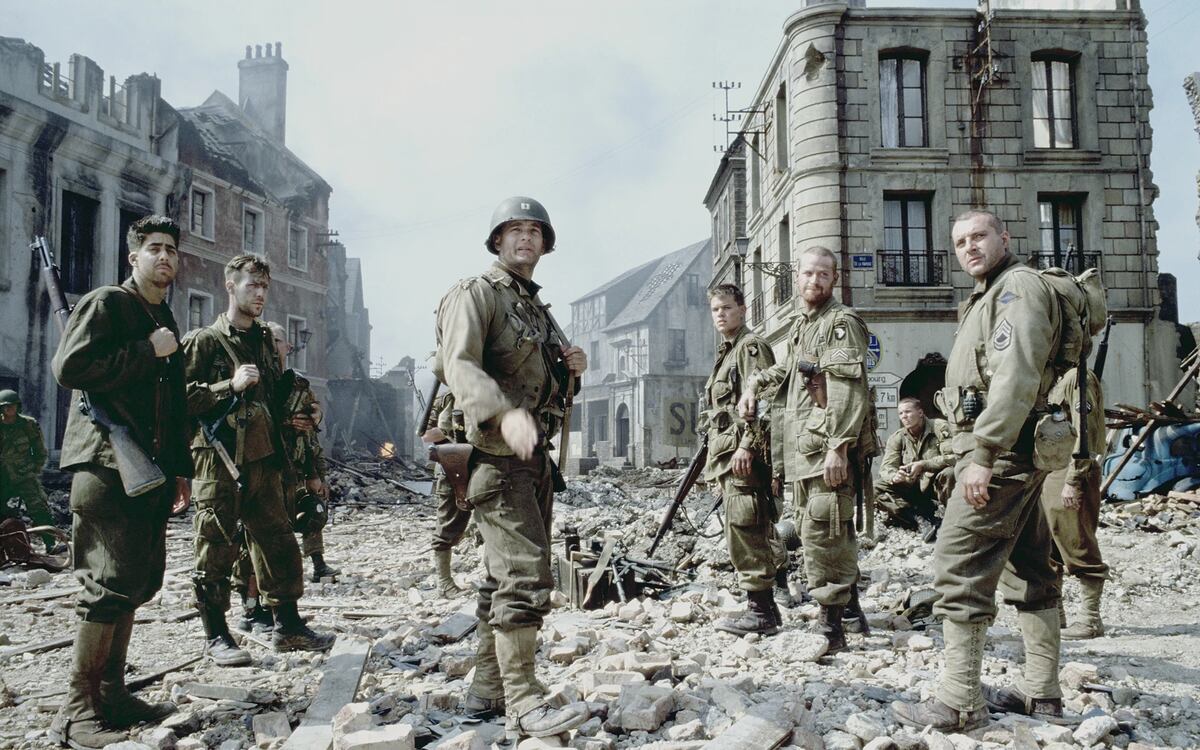In the middle of “Saving Private Ryan,” as tension among the squad reaches a boiling point, Captain John H. Miller (Tom Hanks) does something unexpected. He reveals who he was before the war.
“I’m a schoolteacher. I teach English composition in this little town called Addley, Pennsylvania,” he says quietly, defusing a conflict that threatened to splinter his unit.
It’s a pivotal moment — less than two minutes of screen time — but it operates as a strategic move in a chess game. Measured. Human. Calculated. And entirely genius.
Though not an actual game of chess, this scene has often been called the “chess scene” because it reframes the characters, mission and ethics of war.
Captain Miller’s revelation is a sacrifice of control in exchange for unity, giving a piece of himself to keep the rest of the board intact.
The squad had been unraveling. After the death of medic Wade, the men capture a German soldier responsible. Some, like Private Reiben, want him executed. Others argue for due process. The standoff nearly comes to blows before Miller’s confession restores order. It’s not an order that stops them — it’s empathy. In that moment, Miller ceases to be just “sir.”
Director Steven Spielberg’s commitment to realism shaped how Captain Miller’s character was revealed throughout the film.
“I wanted people to feel the claustrophobia of that environment and the tension and the anxiety and the bravery,” Spielberg told the Los Angeles Times in 2018. “I didn’t want the camera to be a third party.”
By keeping the audience embedded with the soldiers rather than offering detached exposition, Spielberg made Miller’s eventual revelation about his past even more impactful. The information wasn’t handed to the audience; it was earned through shared experience.
This deep respect for ordinary soldiers’ experiences fueled Spielberg’s decision to portray Captain Miller not as a larger-than-life hero, but as an ordinary man thrust into extraordinary circumstances.
In an interview with Roger Ebert, Tom Hanks reflected on the tension between Miller’s civilian identity and his wartime role.
“The reality is that only 10 percent of the guys who went ashore on D-Day were combat veterans,” Hanks told Ebert. “Miller is one of them because he’d already seen some hideous action in Italy, so he is a terrified man because he is an experienced man.”
That fear, held in check by duty, is visible in the scene. Miller isn’t just calming his men; he’s reminding himself who he is. The irony is cutting: a man trained to shape minds is now tasked with leading others to their possible deaths. The subtext of his confession is clear: “I used to build lives. Now I send them to die.”
Cinematically, it’s a pause in the action that feels almost sacred. Spielberg and cinematographer Janusz Kamiński stage the scene without dramatic camera movement. There is no swelling score — just stillness, space, and silence. It’s filmed like a dialogue at a kitchen table, not in war-torn France.
The contrast mirrors the central contradiction of the film itself — how can a war movie be about saving one man when thousands are dying? How can a teacher become a killer? These aren’t abstract questions for the audience — they’re moral burdens for the men onscreen.
When discussing his approach to portraying Captain Miller, Tom Hanks reflected on that burden.
“The first time I read about Captain John Miller, here’s what I got: He’s scared. And he’s afraid in the same way that I would be in his circumstances,” Hanks said in an interview with SlashFilm. “His fear is the reason for everything he does. And all the questions that are answered in the movie come back to that core thing.”
That fear, held in check by responsibility and duty, ultimately defines Miller’s leadership and humanity.
The metaphorical chessboard is full of pieces: Reiben’s rebelliousness, Horvath’s loyalty, Upham’s naivety. Miller is the king — slow-moving, constantly protected, but crucial to the mission. His self-disclosure is strategic, trading personal privacy to keep the team intact.
But the genius lies in its restraint. Spielberg never tells the audience how to feel. He simply gives them a moment of calm, honesty and identity. That restraint makes the scene land harder, because viewers, like soldiers, are left to wrestle with the meaning.
This idea of “civilian memory as survival” echoes through military history. Soldiers in every conflict have clung to their pre-war identities as a tether to sanity. World War II letters reference home life, family roles and jobs waiting back in towns like Addley, Pennsylvania. Miller’s confession isn’t just narrative — it’s documentary.
That grounding also speaks to the larger sacrifice. Miller’s greatest fear isn’t death. It’s going home changed beyond recognition.
“Sometimes I wonder if I’ve changed so much that my wife is even going to recognize me,” he tells the men.
By the film’s end, when Miller delivers his final line— “Earn this” —it’s not just about the mission. It encompasses everything that came before: the classroom, the chess scene, the hesitation, the cost. He’s not just talking to Private Ryan. He’s talking to all of us.
In “Saving Private Ryan,” violence is constant. But the most cutting blow may be the quiet realization that these men, often depicted as heroes, are teachers, typists and tradesmen just trying to get home.
The “chess scene” is a small move in the film’s larger strategy, but its emotional impact is enormous. It doesn’t advance the mission. It reminds us why the mission matters.
Read the full article here








